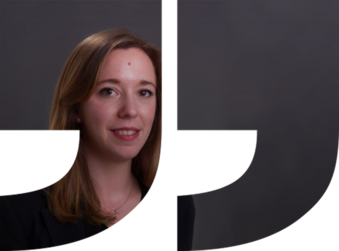The profession of health economist
The Health Economist plays a key role in operational management and decision-making within public organizations and private entities in the healthcare and social care sectors.
They collect, analyze, and synthesize medical and economic information to support decision-making. Health Economists often work in consulting firms and assist leaders and managers of healthcare organizations as consultants.
The Master's in Economics and Management of Health and Healthcare at Université Paris Dauphine – PSL prepares future graduates for careers as consultants and health economists by providing expertise in economics and management of structures in this sector.
Words from our alumni
"I contribute in my own way to improving the healthcare system."

What does the role of a healthcare consultant involve on a daily basis?
My daily work involves supporting medical and nursing teams to improve their organization and carry out their complex projects. In short, helping them.
Some of the projects I am currently working on include: supporting the opening of a rheumatology care unit, improving stock management in the operating room, and deploying a digital surgery preparation app for ENT surgery...
What aspect of this job interests you the most?
First and foremost, the purpose: I contribute in my own way to improving the healthcare system. I also love the diversity of my tasks—there’s never a dull moment!
Why did you choose Université Paris Dauphine-PSL for your training?
After my nursing training, I wanted to gain solid project management skills. Dauphine, with its reputation and specialization in healthcare, seemed like the obvious choice.
What is THE most essential skill that the Master’s in Health Economics and Management at Dauphine provided you, and that still serves you today in your career?
It’s hard to choose because the program is very comprehensive and gave me a broad foundation of knowledge. It provided me with a general culture around project management (economic and financial, legal, change management…).
ALIX GIRAUD
HEALTHCARE CONSULTANT - MEDTRONIC
His background:
Master's in Health Economics and Management
Role and responsibilities of a health economist
The Health Economist acts as the interface between management and medicine. They can carry out short-term tasks such as audits, as well as longer projects involving project management or change management. Their multidisciplinary approach allows them to engage with various stakeholders within the management and executive teams.

Daily tasks
Throughout their career, the Health Economist will take on the following responsibilities:
- Analyze and optimize processes
- Collect and centralize usable data
- Design dashboards for decision-makers
- Conduct studies and reports on specific issues
- Lead change management
- Conduct socio-economic monitoring
Salaries and career progression
The median salary for a Health Economics Consultant or Health Economist is €37,800 gross annually at the end of their studies at Université Paris Dauphine-PSL. Depending on the organization they work for and the tasks assigned, their salary may vary. After ten years of experience and with greater responsibilities, a senior Health Economics Consultant earns between €45,000 and €55,000 gross annually.
During their career, the Health Economics Consultant can progress to high-responsibility roles, such as managers or executives of healthcare organizations or institutions related to health. Another possible career path is becoming an independent consultant to take on consulting missions.

Required skills
- Mastery of the specifics and structure of the healthcare sector
- Proficiency in tools and technological solutions essential for the operation of a healthcare or social care organization
- Advanced knowledge of social legislation, both French and European
- Understanding of cross-cutting issues
- Excellent interpersonal skills with all stakeholders
- Strong synthesis and reporting skills
- Change management expertise
What studies are required to become a health economist ?
To become a Health Economist, it is essential to gain knowledge in management as well as technical and legislative expertise in the healthcare sector. A high-quality Master's degree (Bac+5) is required for students who wish to pursue this career path.
Training to become a health economics consultant
at Université Paris Dauphine-PSL
Université Paris Dauphine-PSL offers a Master's in Economics and Management of Health and Healthcare aimed at training future Health Economists. Students benefit from a high-quality program that prepares them to address the challenges and strategic decision-making processes in healthcare organizations. The various specialization tracks are available in continuing education, initial training, and work-study formats to suit all profiles.






